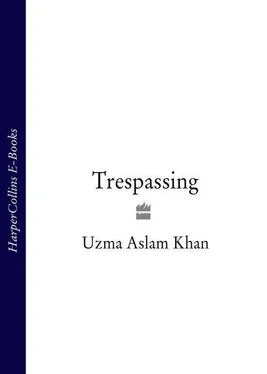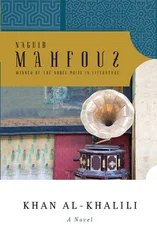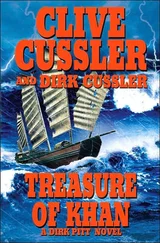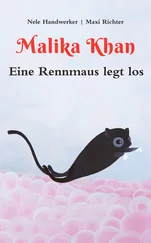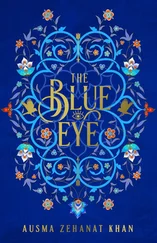‘Here he comes,’ Fatah whistled. The men spun around so their backs were to the river, and their faces to the sun. The Commander liked to say that anyone who claimed crime was chaos had never committed a gruesome enough one. Crime was discipline. Sunburn and teary eyes were part of the discipline. So the men squinted up into the rising star while the Commander stood glowering in the shade of a sisky tree because there was nothing to smile about, given the qaumi halat, the state of the country.
‘Anyone who smiles has never looked at the sun,’ whispered Fatah. The man next to him snorted.
The Commander began, ‘What has the nation done for you? You are illiterate, homeless, and hungry. You have been cut from your mothers too early, ripped from her womb like the slimy yellow fish eggs in a maha sher’s gut! See how they drift in the river? That is you. Filthy, ugly, destined to drift from current to current. God cannot even grant you the mercy of camouflage. You can see those sons-of-owl fish eggs from the tallest cliffs on the banks!’
Salaamat and the others shifted. The Commander had never climbed a dune, let alone a cliff. He had the job because the Chief was his brother-in-law. Salaamat looked up at the sandstone towering around them. The sun was gradually creeping over to the ledge where every morning, around this time, a fish eagle fed her nest. Fatah and Salaamat had climbed these cliffs; they’d almost seen the nest. They’d also seen the fish eggs from all the way up there. And the Commander was right: they were an eyesore.
The Commander paced in front of them with a keekar stick in one hand, the antique Winchester in the other. Much to Fatah’s disgust, the Chief had presented the gift to his brother-in-law. The eddying design on the stock glistened, because while the men trained, the Commander oiled. The keekar was his toothbrush. He probed his mouth with it, then spat. ‘So what do you do? One word: dislocation. They cut you off, now you cut them off. We will achieve our goal through discipline. Mental discipline.’
The eagle soared into view, and then she must have landed on the faraway ledge because the chicks’ greeting echoed in the gorge.
The Commander smacked his toothbrush against his thighs as his voice thundered, ‘You have to temper your longings, to stop answering to this environment. You have to shut down, and then you have to shrink. You have to will yourself into a tiny steel nugget. You have to concentrate and learn to target this nugget. You will not simply use rounds. You will become them. In this camp, there are exactly twenty-seven Bullets.’
When he was finished, half the men retired to a stretch of beach reserved for combat practice. While they primed their bodies, the others, led by First Lieutenant Muhammad Shah, headed south to the highway. Their victims were taken to the Chief’s bungalow, many miles inland.
The training varied in intensity, depending on, Salaamat realized, nothing at all. It was haphazard, random. It could involve assembling and disassembling Kalashnikovs more deftly than lacing boots, pitching tents one-handed (while the Commander, shining the Winchester, timed them with a stopwatch), or firing pistols at a mark in the center of a slab of sandstone. The last was what he thought he’d enjoy most, except the acoustics in the gorge were wreaking havoc with his left eardrum. If his hearing had fluctuated before coming here, now he heard too much. His eardrum was a golden whistle and the slightest sound was augmented by several decibels. He learned to shoot little but with expert precision, and became better than most who’d trained longer. He used the cheap Tokarev.22 — slept with it, ate with it, never leaving it in the tent even when others appeared to be resting. Tempers flared quickly here.
Then there were sit-ups, push-ups, jogs along the length of the beach in the blazing heat with weighted backpacks. Or the men wrestled — half scuffling, half kicking. Or scaled the steepest reaches of the cliffs while the Commander frowned deeply behind the little stopwatch. This was Fatah’s forte. He was like a well-fed goat — sure-footed and taut around the gut. Compact, but strong. Salaamat had control but Fatah agility, and Salaamat let himself be lured into betting away most of his cigarettes because he loved watching Fatah leap past him as eagerly as the children swimming out to the anchor line in his village had done. Fatah would turn and smile back in the same way: Look. I did it.
When they weren’t training, the men slept, played cards, argued, or disappeared in twos and threes behind rocks. Salaamat and Fatah explored the gorge like boys on a field trip. The floor was carpeted with soft pine needles and pigeon shit. Some of the bluffs resembled white volcanic ash, too soft to climb but pitted into chimney shapes so that from the shore, the tiers were like an army of ghosts presiding over them.
Fatah liked to hop up the cones and peer through the natural windows. He’d strut like the Commander. ‘So. Let us not forget why we are here!’
If Salaamat didn’t play along he’d smack the back of his head and strut some more till Salaamat, taking pity on him, squealed, ‘Why are we here, sir!’
‘Why, you fool. To fight for a separate Sindhi homeland!’ Then he’d pretend to brush his teeth.
He was two years younger than Salaamat but had already killed three men.
Today they climbed nimbly up the pass for a better view of the eagle’s nest. Fatah spoke of the last raid he’d been in. Two men on a motorcycle were rounding a bend off the highway when Fatah and three others opened fire. One man had two thousand rupees on him. The other had nothing but a photograph in his wallet. They were shot in the limbs and then Muhammad Shah wanted to try the stun belt recently acquired from Amreeka. So they took the men to the cell farther inland but on the way one bled to death. The other was still in the cell, alive.
A sheer wall blocked their path so they retraced their steps and looked for another way up. Fatah explained that though the Commander was a chichra, he was right about a few things. They really could never forget where they were. ‘Who we are and how we end up depends entirely on gigraphy.’
Salaamat said nothing. Fatah liked to talk about geography as much as he liked to win bets. And Salaamat rarely interrupted because Fatah was awesome. He’d gone to school. Real school. He had books he could read. He’d even attended a few months of university. He was not from an old village like Salaamat. He grew up in Karachi and had a kind of worldly air about him that was foolish to refute. While Salaamat had wasted his time painting buses, Fatah had been scanning the highways. He knew more. And he thought more too. He had a clear philosophy, while Salaamat simply drifted.
Fatah reminded him that he too would have to kill one day soon. Salaamat walked faster, losing sight of the ledge completely.
They paused on an outcrop. The river looked immensely blue from here. In a few months, when it rained, the glaciers of the north would melt and pour into it, hurling gray debris.
What would he have done by then?
He liked to shoot, it was true, but he didn’t know about changing his target. He didn’t want to be pinned down to that. Maybe he’d do it, maybe not, but it was wrong to judge him on that alone.
The truth was he wished sometimes that the camp weren’t in such a beautiful place. It should have been in a filthy burning city street. In the charred backseat of an overturned bus. The stinking hole Handsome’s workers shat in. Instead it was here, in an isolated patch in the far north of the province. Fatah said most camps were further south, where the banks were heavily forested. Maybe that would have been better. More confining. Dark. These capacious rocks spoke to him. He’d joined the camp thinking it would be his way to at last shrivel up and die, but if anything, the opposite had happened. Salaamat was beginning to like his world again.
Читать дальше
Конец ознакомительного отрывка
Купить книгу
